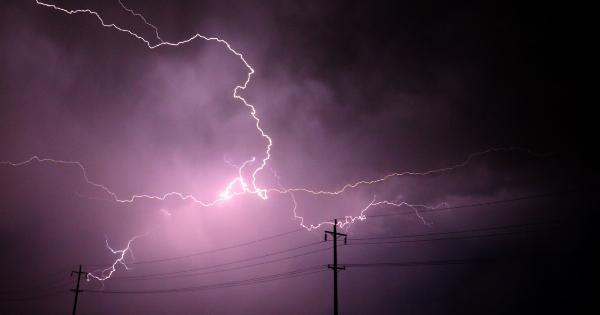Have you ever woken up in the middle of the night, sweating and gasping for breath after having a terrible nightmare? Nightmares are bad dreams that are not only scary but also cause anxiety, fear, and often lead to insomnia.
While having a nightmare is not uncommon, it is still not clear what causes them. Some people believe that recurring nightmares can be linked to psychological or emotional stress.
Others think that nightmares are the brain’s way of dealing with negative experiences.
Although it is essential to understand what causes nightmares, it is equally important to know when they happen the most. Here are the most common nights for having nightmares:.
The night before a exam or important event
The night before an important test or a job interview can be nerve-wracking. Studies suggest that the anxiety and stress experienced before such events can cause nightmares.
This may happen because the mind is still processing all the information about the upcoming event, and it manifests as scary dreams.
The night after consuming alcohol or drugs
Drugs and alcohol affect our mental state by altering the brain’s chemistry. This can cause disrupted sleep and nightmares. Alcohol consumption can also make it difficult to enter a deep state of sleep, which can trigger nightmares.
After a traumatic event
It is common for people to have nightmares after experiencing a traumatic event such as an accident, physical assault, or emotional trauma.
This happens because the brain tries to make sense of the traumatic experience while you sleep, which can lead to nightmares.
During periods of high anxiety
Anxiety is a persistent feeling of fear and apprehension about what is to come. High anxiety levels can lead to nightmares as the mind is dealing with negative emotions while we sleep.
Conditions such as post-traumatic stress disorder, depression, and anxiety disorders can cause recurring nightmares.
When you are experiencing grief or loss
Grief is a complex emotion that comes with feelings of sadness, despair, and confusion. As you process through these emotions, you may experience nightmares.
These nightmares can be linked to the underlying fear of losing a loved one or a traumatic experience that led to the grief.
The night after watching a horror movie
After watching a horror movie, some people report having nightmares. This is likely because the brain is still processing and trying to make sense of the horrifying images it just saw.
The brain is associating the images with reality and trying to solve the puzzles, which can manifest as nightmares.
The night after eating heavy meals or snacks before bed
Eating a heavy meal or snack before bed can cause indigestion and discomfort, which can lead to disrupted sleep and nightmares. Your digestive system is working hard to process the food, causing your body and mind to be restless, leading to bad dreams.
The night after experiencing jet lag or a change in your sleep routine
Jet lag can disrupt your sleep-wake cycle and contribute to sleepless nights. Similarly, changes in sleep routine can cause sleep deprivation and trigger nightmares.
When the body clock is off, the brain is trying to catch up on lost sleep, which can lead to bad dreams.
During fever or illness
During a fever or illness, the brain is under stress, which can lead to overcrowded thoughts and dreams. The body is working extra hard to fight off the illness, which can lead to restless sleep, leading to nightmares.
When you are sleep deprived
The brain needs to go through five different stages of sleep every night to function properly. If you are sleep deprived, your body has a hard time reaching the REM stage, which is where most dreams occur.
This can lead to nightmares since your brain is trying to catch up on lost sleep.






























